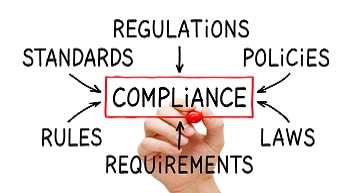Given recent experience in Ireland, the construction sector must operate to the highest of standards and be accountable for its actions. Regulation of the sector is critical but revisions and additions to an already complex regulatory environment adds an additional level of complexity for compliance and dilemma for enforcement. Appropriate regulation, with consistent application across the local authority areas, is fundamental to the development of a strong and sustainable construction sector.
Emissions from the construction industry reached the highest ever level in 2019. The use of fossil fuels (coal, oil and natural gas) for heating, lighting and cooking as well as an increasing energy demand for air-conditioner cooling with worsening extreme heat means that together, construction and building operations account for nearly 40% of global energy-related CO2 emissions. Addressing the industry’s CO2 emissions is crucial to delivering climate-action objectives.
As new construction is expected to double the worlds building stock by 2060, an increasing number of institutional investors are recognising that environmental, social, and governance (ESG) factors can materially affect a company’s performance and market value and are key to reducing risk. These socially conscious investors consider the ESG standards as the means to future-proof the value of investments.
The Irish Government’s current policy initiative, Project Ireland 2040, indicates that by 2040 an additional one million people will live in Ireland and an additional two-thirds of a million people will work here. This means that an immediate priority is to increase the overall housing supply to between 30,000-35,000 housing units annually by 2027. Private equity and Build-To-Rent (BTR) have a vital role to play in meeting these goals. Partnering with international investors, an increasing number of Irish based developers are bringing BTR projects to market.
On the investment side, according to both CBRE and Savills, investors increasingly consider that ESG criteria have a role to play in successful residential development and are targeting investment opportunities which fulfil these criteria. The ESG strategy published by Hines and its Dutch joint-venture investment partner APG for the mixed-use development at Cherrywood in South County Dublin outlines the approach being taken to minimise construction and operational impacts on the environment and the ways in which energy efficiency, health & wellness and social inclusivity is being promoted within the development.
On the construction side, building green and decarbonising the construction sector should mitigate the worst effects of climate breakdown and there have been positive developments in the construction sector in Ireland. The Irish Green Building Council (IGBC), an organisation aligned with the World Green Building Council (WGBC), promotes the acceleration of building sustainable homes. Its Home Performance Index (HPI), a new voluntary building code for home building in Ireland, is awarded based on the standard of a home’s design, construction, and environmental sustainability. Developers who set out to build new homes to this standard can also avail of loan discounts through Home Building Finance Ireland (HBFI).
Ireland's growing population, rising property prices and demand for long-term private residential accommodation are fundamental drivers for investment into the BTR sector and construction but revisions and additions to an already complex regulatory environment adds an additional level of complexity for compliance and dilemma for enforcement.
The question of who pays the additional costs associated with meeting new ESG targets in development, construction and living amenities remains for now unanswered. While investors focus on the bottom line, tenants already challenged by high rental costs, seem unlikely to agree to any additional outlays.
Given recent experience in Ireland, the construction sector must operate to the highest of standards and be accountable for its actions. If managed correctly, the interconnectedness between building, rental, green and ESG standards could enhance accommodation standards overall. Regular inspection to independently verify standards along with enforcement where contraventions are identified should ensure the best outcome for all stakeholders.

